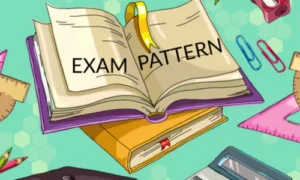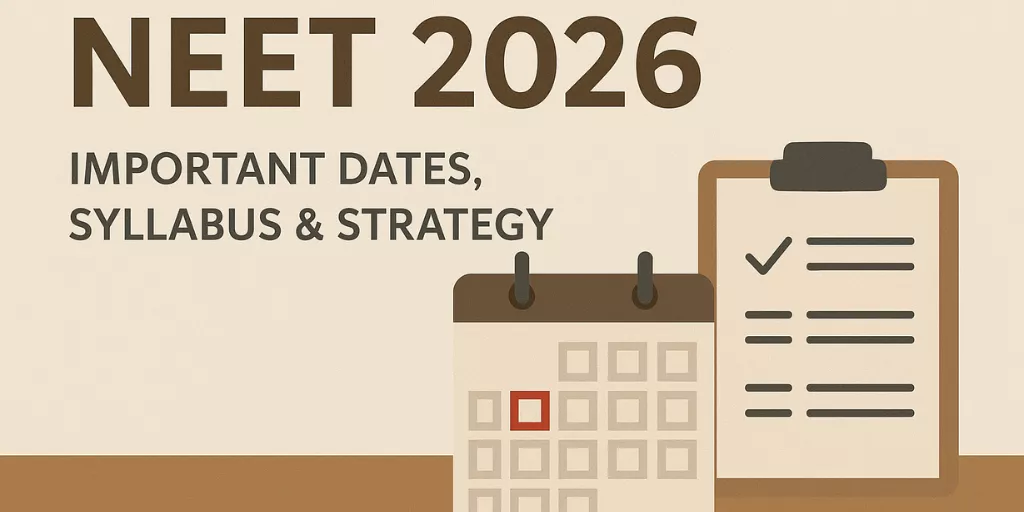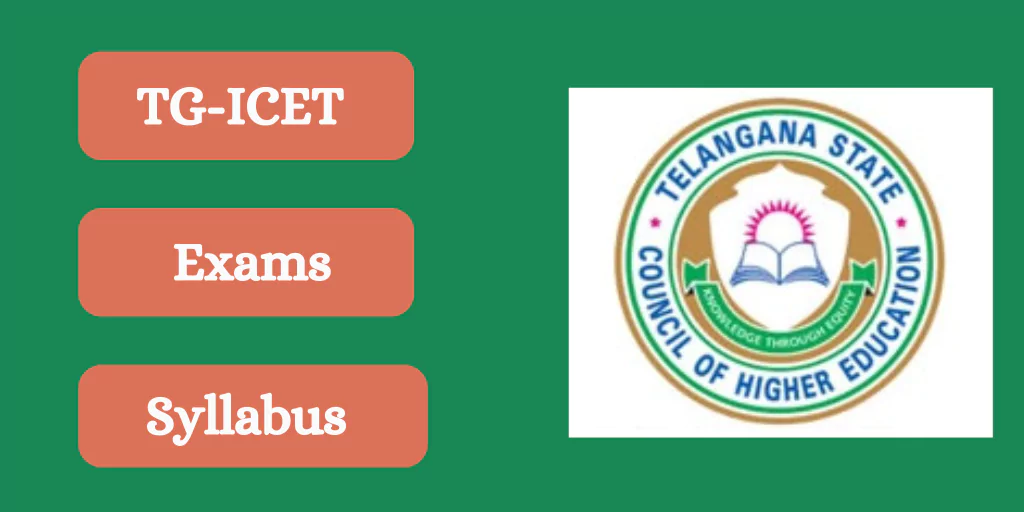The National Testing Agency (NTA) administers the NEET (National Eligibility-cum-Entrance Test) for undergraduate medical admissions in India. As NEET 2026 approaches, candidates should start early, learn the pattern completely, and devise a strategy to stand out.
Important Dates
| Event | Tentative Date |
|---|---|
| Official Notification Release | First Week of Feb 2026 |
| Application Form Start | First Week of Feb 2026 |
| Last Date for Application | First Week of March 2026 |
| Admit Card Release | Around April 2026 |
| Exam Date | Sunday, 3 May 2026 |
| Result Declaration | June 2026 |
| Counselling Begins | July 2026 for many seats |
Exam Pattern and Structure

- The exam is a one-paper, pen-and-paper test that covers Physics, Chemistry, and Biology (Botany and Zoology).
- It has a total of 200 questions (180 of which must be answered) spread across four sections.
- Each subject (physics, chemistry, botany, and zoology) contains 45-50 problems.
- Each question carries 4 points for the correct answer and -1 point for the erroneous response.
- The duration is 3 hours.
- The language options include English, Hindi, and several regional languages.
Syllabus Highlights

- Physics: Mechanics, Thermodynamics, Electrodynamics, Modern Physics, etc.
- Chemistry: Physical, Inorganic & Organic Chemistry – key reactions, periodicity, bonding, practicals.
- Biology: Botany (Plant Physiology, Genetics, Ecology) + Zoology (Human Physiology, Reproduction, Evolution).
The syllabus broadly aligns with the Class 11 & 12 CBSE / equivalent curricula.
Previous Year Papers and Their Importance
- Solving previous year’s papers helps you:
- Learn about the different types of questions and their difficulty levels.
- Understand time management and sectional weightages.
- Identify recurring topics for prioritisation.
Best Books and Study Materials

Consider the following when preparing for NEET 2026:
- NCERT Class 11 and 12 textbooks (all subjects) are foundational.
- Subject-specific resources from reputable publishers for deeper practice.
- Books that focus on Previous Year Questions (PYQs) and full-length mock examinations.
- Ensure that the content has been updated to reflect the most recent pattern and syllabus revisions.
Preparation Strategy: A Roadmap

- Foundation Phase: Finish NCERT thoroughly and take summary notes.
- Practice Phase: Solve topic-specific exercises; start with easy practice sets.
- Mock Test Phase: Conduct timed full-length mocks to simulate exam conditions.
- Revision Phase: In the last months, switch to revision-only mode and focus on weak themes and frequently asked questions.
- Exam Day Mindset: Stay cool, manage your time, start with higher-confidence questions, and keep an eye out for bad marks.
Time Management and Exam Tips
- Divide time nearly evenly among subjects, giving somewhat more to weaker regions.
- Use a stopwatch during practice to improve speed and accuracy.
- If a question appears to be too difficult to answer, skip it and return later rather than wasting time.
- Keep formula sheets and fast revision cards accessible for last-minute revision.
Conclusion
NEET 2026 requires persistent effort, clever planning, and rigorous execution. Understanding the pattern, aligning with the syllabus, selecting the right materials, and practising regularly will help you approach the exam confidently. Remember that quality of preparation trumps quantity. Stay focused, motivated, and track your progress.






